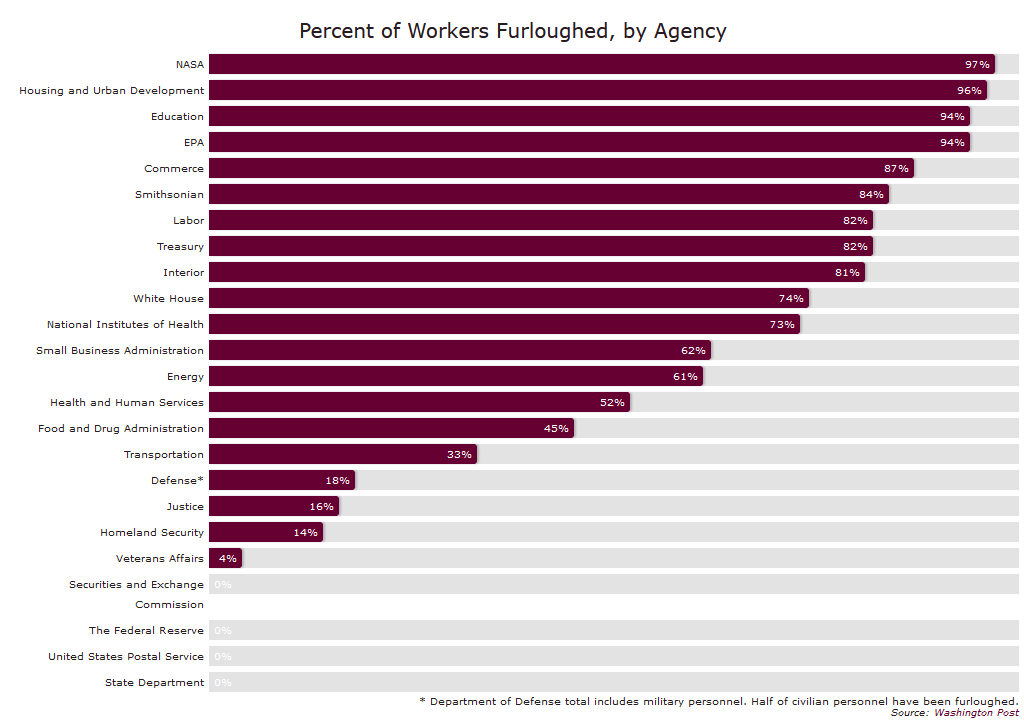If the government is partially shut down by Progressive-Democratic Party Congressional politician obstructionism, millions of federal employees could face furloughs, some federal offices may close or work shortened hours.
Those furloughs and closures would give us some interesting data on the usefulness/criticality of those furloughees and offices. Here’s what Slate found regarding these items during the Obama “shutdown” some 10 years ago:
Notice a couple of things here regarding Progressive-Democrat President Joe Biden’s threat to stop paying our military members and Party politicians’ threats regarding the VA (right click on the graph and select Open Image in New Tab to get a bigger image). One is the Veterans Affairs level of furloughing: all of 4%. That’s not importantly different from the ordinary absentee rate due to illness, vacation, and so on.
Then look at the Defense line and the Note at the bottom of the graph, the latter which says Department of Defense total includes military personnel. Half of civilian personnel have been furloughed. The civilian furlough rate of 50% is a strong indication of how many of those civilians really are needed in the Pentagon and elsewhere in DoD. The military side of DoD can easily continue being paid out of current tax law-driven revenues flowing in to the government.
Finally, notice the furlough rate at so many of those Federal Agencies. That’s also a very strong indication of how many employees are truly unnecessary. Certainly, short-term furloughs overstate the degree of redundancy, but they give a very good index into how many truly are excess.
